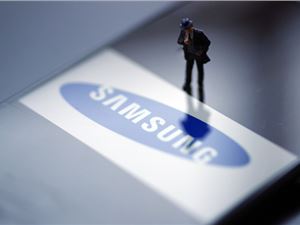Taiwan Semiconductor Manufacturing Company (TSMC) is expected to release its fourth-quarter financial report this Thursday, showing that its net profit is projected to increase by 58% compared to the same period last year, primarily due to a surge in demand for artificial intelligence (AI) chips. As the world's largest semiconductor foundry, TSMC has greatly benefited from the AI boom; however, challenges from U.S. technology restrictions and uncertainties regarding potential import tariffs under the new Trump administration pose significant hurdles.
According to analyses from 22 analysts, TSMC's net profit for the fourth quarter of 2023 is expected to reach NT$377.95 billion (approximately US$11.41 billion), compared to NT$238.7 billion in the same quarter last year. TSMC's quarterly revenue figures released last week exceeded market expectations, and the company plans to hold a meeting later this week to provide revenue forecasts in U.S. dollars.

For TSMC, maintaining a good relationship with the Trump administration is crucial. Brett Simpson, co-founder and senior analyst at Arete Research, stated that 2025 is expected to be a significant year for TSMC's continued growth driven by AI customers. He is confident that TSMC will be able to establish a good rapport with the new administration.
It is worth noting that TSMC is investing globally to build factories, including a US$65 billion investment to construct three new plants in Arizona. However, most production activities will remain at the original site. TSMC plans to update its current quarter and annual outlook, including capital expenditure plans, in the upcoming financial report. In a report last October, TSMC indicated that capital expenditures for 2025 are expected to exceed those for 2024, although specific figures were not disclosed. The company previously predicted that capital investments for 2024 would surpass US$30 billion.
The AI boom has driven TSMC's stock price to soar, with shares rising 81% on the Taipei Stock Exchange last year, while the broader market only increased by 28.5% during the same period. For investors and the market, TSMC's performance is undoubtedly a positive signal, demonstrating its dominant position in the global semiconductor market.










